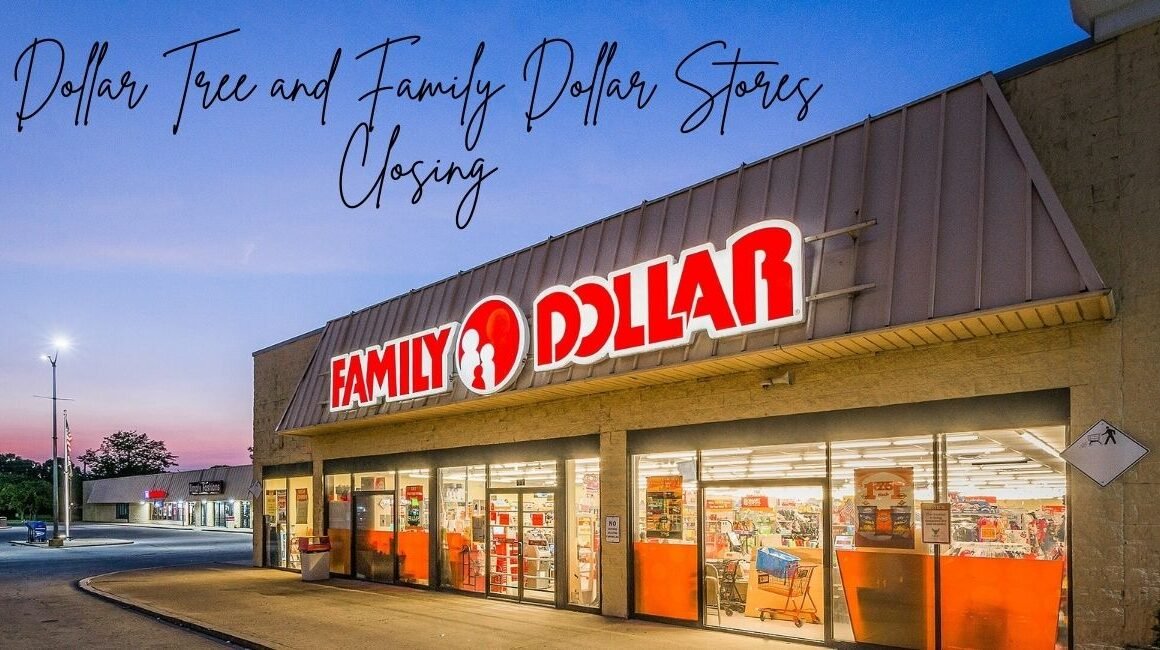In recent years, the retail industry has seen significant shifts, with numerous stores closing their doors permanently. Among the notable mentions are Dollar Tree and Family Dollar stores. These closures have left many wondering about the future of these popular discount chains and the broader implications for the retail sector. This article delves into the reasons behind these closures, their impact on consumers, and the potential future of the discount retail market.
Reasons for the Closures
1. Economic Pressures
One of the primary reasons behind the closure of Dollar Tree and Family Dollar stores is the economic pressures facing the retail industry. Rising operational costs, including rent, utilities, and wages, have significantly impacted profitability. Additionally, the economic downturn caused by global events, such as the COVID-19 pandemic, has led to decreased consumer spending, further straining these stores’ financial health.
2. Supply Chain Disruptions
Supply chain disruptions have also played a crucial role in the closures. The pandemic caused widespread disruptions in the global supply chain, leading to inventory shortages and increased costs for goods. For discount retailers like Dollar Tree and Family Dollar, which rely on high volume and low margins, these disruptions have been particularly detrimental.
3. Changing Consumer Behavior
Another factor contributing to the closures is the changing behavior of consumers. With the rise of e-commerce giants like Amazon, many consumers have shifted to online shopping for convenience and broader product selection. This shift has led to a decline in foot traffic in physical stores, making it challenging for traditional retailers to sustain their operations.
Impact on Consumers
1. Loss of Convenience
For many consumers, Dollar Tree and Family Dollar stores are a convenient source for affordable everyday items. The closure of these stores means that consumers will have to find alternative sources for their shopping needs, which may not be as accessible or affordable.
2. Economic Impact on Communities
The closure of these stores also has a broader economic impact on the communities they serve. Many of these stores are located in low-income areas where they provide essential goods at low prices. The loss of these stores can lead to reduced access to affordable products, negatively affecting the quality of life for residents.
3. Job Losses
Another significant impact of these closures is the loss of jobs. Dollar Tree and Family Dollar stores employ thousands of workers across the country. The closures will result in job losses, contributing to the overall unemployment rate and economic instability in affected communities.
Future of Discount Retail
1. Adaptation and Innovation
Despite the challenges, there is potential for the discount retail sector to adapt and innovate. Retailers can focus on enhancing their online presence to compete with e-commerce giants. Implementing robust e-commerce platforms and offering delivery or curbside pickup options can attract customers who prefer the convenience of online shopping.
2. Expansion of Product Range
Another strategy for survival is the expansion of product ranges. By offering a more diverse selection of products, including higher-margin items, discount retailers can attract a broader customer base and increase profitability.
3. Focus on Customer Experience
Improving the in-store customer experience can also help retain customers. This can be achieved through better store layouts, enhanced customer service, and loyalty programs that incentivize repeat visits.
Strategic Partnerships
1. Collaboration with Local Businesses
Forming strategic partnerships with local businesses can also be beneficial. By collaborating with local suppliers, discount retailers can reduce supply chain disruptions and offer unique products that differentiate them from competitors.
2. Utilizing Technology
Leveraging technology is another crucial aspect of future success. Implementing advanced inventory management systems can help optimize stock levels, reduce waste, and ensure that popular items are always available. Additionally, utilizing data analytics can provide insights into consumer preferences and help tailor product offerings accordingly.
Community Engagement
1. Supporting Local Initiatives
Engaging with the local community and supporting local initiatives can help build a loyal customer base. By participating in community events, sponsoring local causes, and offering discounts to local residents, discount retailers can strengthen their ties with the community and foster a sense of loyalty.
2. Sustainability Efforts
Focusing on sustainability can also attract environmentally conscious consumers. Implementing eco-friendly practices, such as reducing plastic usage, offering reusable bags, and sourcing products from sustainable suppliers, can enhance the store’s image and appeal to a growing segment of eco-conscious shoppers.
Conclusion
The closure of Dollar Tree and Family Dollar stores is a significant development in the retail industry, driven by economic pressures, supply chain disruptions, and changing consumer behavior. While the impact on consumers and communities is substantial, there are opportunities for the discount retail sector to adapt and thrive. By embracing innovation, expanding product ranges, enhancing customer experiences, forming strategic partnerships, leveraging technology, and engaging with local communities, discount retailers can navigate these challenging times and emerge stronger.
Read Our More Blogs:-



